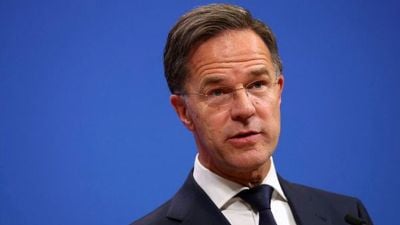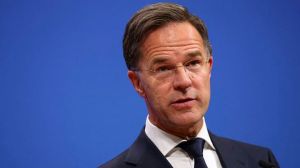Quotas turn caste politics UPside down
SP, BSP show unusual restraint over Lucknow’s medics’ strikes but their eye is on the upper-caste vote, and next year’s elections

It is indeed a delicious irony: as young medicos and software undergraduates pick up brooms and cudgels protesting against reservations for OBCs in institutes of higher learning in cities and towns all over the country, the conch blares in support of a Dalit-Brahmin alliance in Uttar Pradesh, mooted by none other than Bahujan Samaj Party leader Mayawati. And only a fortnight ago, UP Chief Minister Mulayam Singh Yadav, yet another Reservations Ranger, declared April 30 as Parushuram Jayanti — and a state holiday. Parushuram has been revered by Brahmins since centuries but the festival never had state patronage before.
UP is turning the reservations debate on its head, with the first generation Quota Raj leaders Mayawati and Mulayam courting the upper castes, and it’s not without reason. If the Uttar Pradesh caste cauldron hasn’t boiled over, it’s because both have displayed unusual restraint and counsel on the reservation issue. This new-found caution only reveals their unconcealed bid to woo the upper castes, a segment crucial to their victory in the forthcoming Assembly polls in February 2007.
After both the Congress and BJP ceded their space to the two Mandal leaders, the Brahmins have been desperately looking for a party which will look after their interests. Mayawati is trying to forge the Congress’s old winning combination — a Brahmin-Muslim-Dalit alliance. Mulayam too is wooing the Brahmins now that his Muslim votebank is getting restive. However, observers say the Brahmins seem unlikely to move towards Yadav as there is a clash of interests.
For starters, the Mulayam Government has refused to enforce ESMA despite his Chief Secretary declaring the government’s intention to do so early last week. The law, if invoked, would make the anti-reservations stir illegal in the state and force the striking doctors to go back to work or invite criminal charges against them.
In the past weeks, as anti-reservations protests and demonstrations rage in the country, Mulayam’s line — and excuse for caution in dealing with protesters in his state — is that he had already brought reservations for OBCs in the state when he was chief minister in 1994. However, the reservations he talks about are in government jobs, not in institutions of higher learning, which is the focus of the students’ current ire. However, the SP did raise the quota issue in Parliament in the recently concluded session.
And Mayawati’s stand, ever since the anti-reservations stir began, has been a preference for increasing seats in colleges and institutes rather than take away seats from the general category. Both Mulayam and Mayawati have gone the generalist way, demanding an increase in the seats available rather than insist on reservations only.
The BSP’s strategy of wooing upper castes, especially Brahmins, came to public notice in June 2005 with its first Brahmin sammelan, organised in Lucknow by its Brahmin national general secretary, Sudhir Mishra. The process to expand its political base beyond the Dalits had actually begun earlier, when the BSP gave 97 tickets to upper castes, from Brahmins to vaishs (traders), in the last Assembly election.
Scenting the success of the Brahmin rallies, the BSP then launched the vaish sammelans last year, headed by party spokesperson Sudhir Goel. The latest vaish rally was in Kanpur on April 24, 2006. It was a ‘‘resounding success’’, claims Goel, with traders’ associations flocking to it and seeking to join the party. ‘‘The slogan, ‘Bahujan, Mahajan bhai, bhai/ Lala nahin, lal hai’ is catching on among traders’’, Goel says.
vrinda.gopinath@expressindia.com






- 01
- 02
- 03
- 04
- 05

























